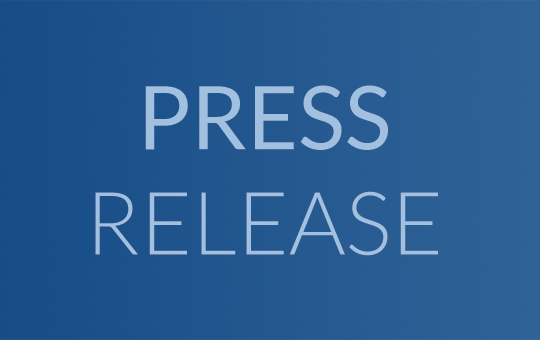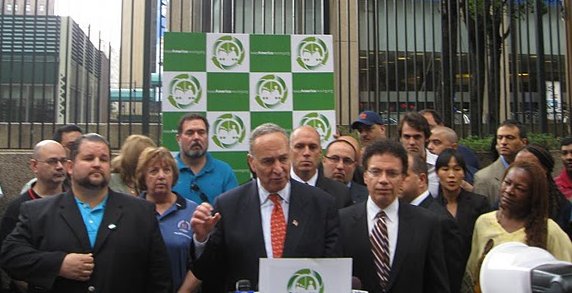
FOR IMMEDIATE RELEASE
After the release of the Senate Democrats’ $1 trillion infrastructure proposal, Beth Osborne, Senior Policy Advisor for Transportation for America, released this statement:
“It’s encouraging to see the Democrats in the Senate respond to President Trump’s charge to beef up America’s investment in infrastructure spending by advancing their own proposal that is multimodal, increases competitive funding, and provides more money for main streets across the country.
“But funding alone will not truly solve the complex problems facing our country’s transportation networks. We increased federal transportation spending year-over-year for at least two decades, yet we still ended up in this situation today with growing backlogs of repair needs, increasing fatalities on our roads, and residents with fewer access to jobs and opportunities than before.
“We do need more infrastructure investment, but we also need that investment to be transparent, accountable and bring the greatest benefits for each dollar spent. This proposal does not specify how the funding would be distributed or how transportation agencies would be held accountable for actually bringing their roads, bridges or transit systems into a state of good repair. How can taxpayers be certain that we wouldn’t just continue a long pattern of neglecting our growing repair needs while building yet more things that come with additional years of maintenance costs?
“That said there are some notable positives worth highlighting in the proposal.
“This proposal directs more than $100 billion directly into the hands of local governments to invest in their priority projects — a move worth applauding. Local leaders in cities and towns of all sizes are the ones who know their specific needs best, but they’re often not even at the table when decisions are made in state offices about where and how to invest. The innovative competitive TIGER grant program — one of the few sources that locals can access directly — doubles to at least $1 billion per year.
“Allocating $200 billion to ‘Vital Infrastructure Projects’ correctly recognizes that we have scores of large projects that are often mega-regional in scope, with significant benefits for the national economy. But it also raises several important questions: who determines which projects to fund? Is this a return of congressional earmarking? Will the most cost-effective large projects be selected, or the projects with the greatest political heft?
“The elephant in the room is the funding source for this ambitious package. Congressional leaders used every accounting maneuver in the book to avoid dealing with our nation’s bankrupt highway trust fund in order to pass a five-year transportation authorization that didn’t cut spending back in 2015. How do they propose to pay for this ambitious investment package?
“Without addressing that difficult question head-on, it’s challenging to fully assess this proposal.”





